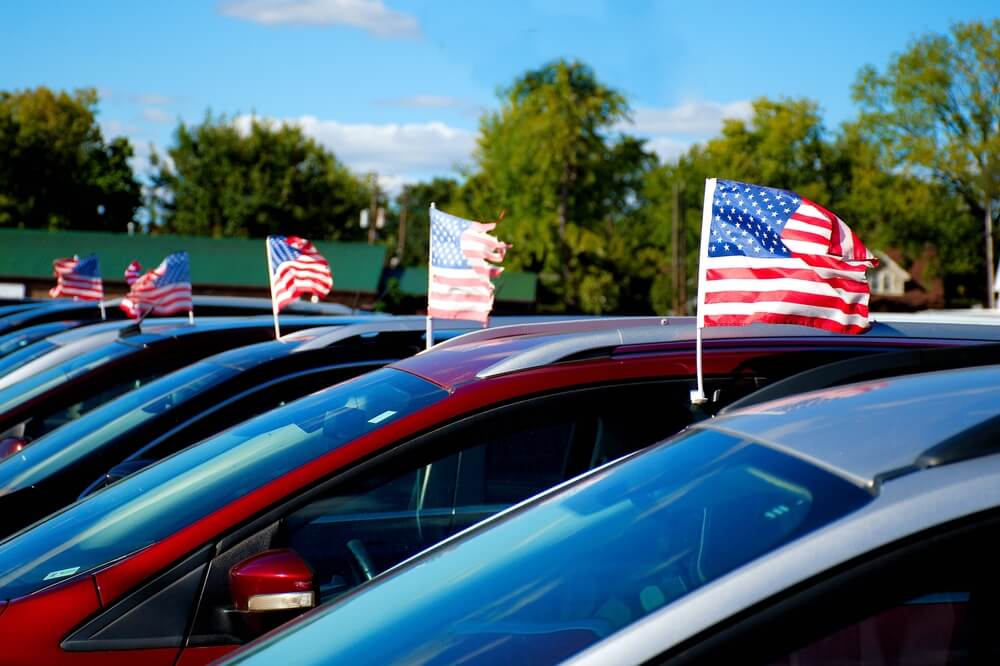
If you are not redirected within 30 seconds, please click here to continue.
Samedi: 10h – 16h HAE

If you are not redirected within 30 seconds, please click here to continue.
If you are not redirected within 30 seconds, please click here to continue.
Sure, you can borrow my car — but are you insured?

This article has been updated from a previous version.
Picture this scenario: You lend your car to a friend for a Facebook Marketplace pick-up, and not for the first time. No big deal, right? But what if, this time, your friend gets into a collision on the way?
Will your auto insurance will cover that collision? What if your friend doesn't have insurance?
Chances are you wouldn't think through all of these scenarios before handing over the keys to your car, but they are crucial to consider when it comes to filing a claim. So, the next time you lend your car make sure you know the answers to the following questions:
Is auto insurance attached to the car or the driver?
In the case of a standard auto insurance policy, the insurance covers the car. So, if you do lend your vehicle, that person is covered under your insurance policy — not theirs. Conversely, if you were to drive their car, you would be covered under their insurance.
However, this means that even though another person was driving your vehicle and got into a collision, it’s your policy that will respond and your rate that could be impacted.
There is another type of car insurance that follows the driver, not the car. It’s called non-owner car insurance, and it’s typically recommended for people who don’t have their own vehicle but frequently rent or borrow cars. In the case of a non-owner car insurance, the coverage protects the driver from having to bear the financial consequences of an at-fault collision.
Related: Do you need to add your children to your auto insurance?
Does my guest driver have to meet any requirements?
To meet the coverage requirements, your guest driver will need to have a valid Canadian driver's licence. The guest driver must also have your expressed permission to drive the vehicle, whether through a written or verbal agreement.
The driver must adhere to all provincial and territorial driving laws, and not be committing a criminal offence or engaging in a prohibited activity while driving, such as racing. Be sure that a guest driver has access to your proof of insurance in case they are in a collision or are pulled over.
Will my insurance go up if a guest driver gets into a collision?
If the driver of your vehicle is in an at-fault collision, don't be surprised to see your insurance rate go up. Although you weren't behind the wheel, your decision to lend your car to a driver makes you a higher risk in the eyes of your insurance company and therefore, subject to a greater insurance premium.
What if the person driving my car doesn't have insurance?
If the person driving your car is involved in an at-fault collision, your insurance covers the vehicle, whether they have their own auto insurance policy or not. Legally, they are allowed to drive your car without having their own insurance policy, but where things can get a bit complicated is if they are in a very serious collision and the cost of damages exceeds your coverage limits.
However, if the guest driver has non-owner car insurance, then their insurance could pay secondary to your policy. Keep in mind that non-owner car insurance differs between provinces, so you and the driver will have to ask about specific terms for their coverage in the event of an incident.
If they don't have insurance, any damages you owe over your coverage limit would end up being your responsibility
Related: Will my car insurance cover damage discovered after filing a claim?
How often can I lend my car to the same person?
If you are lending your car to your friend on a daily or even weekly basis, you should add them to your insurance policy as an occasional or secondary driver. If they were to get in a collision and it is established that they frequently drive your car, your insurance may have grounds not to honour your claim and lead to denial or a policy cancellation for inaccurate representation.
The rules may vary from provider to provider on how often a driver borrows your car before you need to add them to your policy. When in doubt, it is best to ask.
With the answers to these questions in mind, you can better decide whether to agree to lend your car to another driver or not. Remember that the person driving is covered by your insurance, and if they are in a collision, it could potentially affect your future premiums.
Only lend your car to someone you trust and make sure you have the best car insurance policy.
Read next: Primary vs. Secondary driver: How does it influence your rate?
Don't waste time calling around for auto insurance
Use Rates.ca to shop around, and compare multiple quotes at the same time.
Get money-saving tips in your inbox.
Stay on top of personal finance tips from our money experts!










